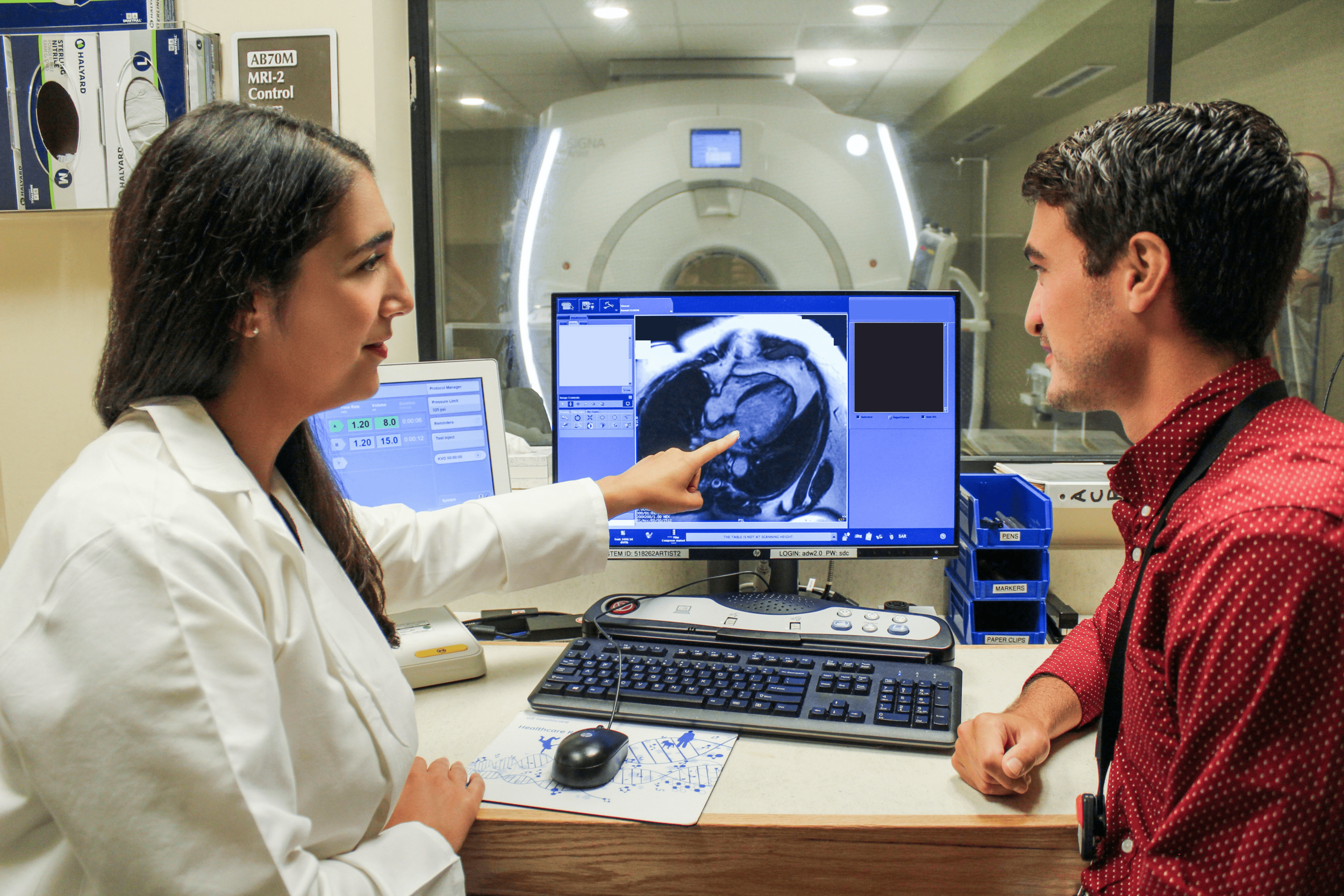
Imaging Equipment
CT Scanners
Albany Medical Center has eight state-of-the-art CT scanners. These are located throughout the hospital including within the main department, as well as adjacent to the Emergency Department, the ICUs and operating rooms to improve access to imaging for critically ill patients or for imaging guidance during surgery. Albany Medical Center has one of the most technologically advanced CT imaging systems on the market today, the GE Revolution CT. Some of its capabilities include:
16 cm wide detector for one beat cardiac acquisition.
Dual energy CT capabilities.
80cm wide gantry and whisper quiet drive for patient comfort
256 slices per rotation
Additional CT scanners include:
GE CT Discovery Dual Energy 128-Slice in ER
GE CT LightSpeed VCT 64-Slice in the MICU
Hybrid Neuro OR/CT suite
GE CT LightSpeed 64-Slice
Dedicated IR procedure scanner in suites
GE CT LightSpeed 64-Slice in old ICU
MRI Scanners
Additionally, the department has eight superconducting magnets. Four of these units are at the main hospital which serve our inpatient and emergent patient population while the other four units are positioned at South Clinical Campus for outpatients.
Two of our eight scanners are 3T scanners which allow Albany Med’s radiology department to perform highly complex and detailed exams.
Our MRI systems are all accredited with the American College of Radiology.
MRI is performed in all subspecialties, with advanced cases including cardiac, breast, fetal, and prostate imaging. Additionally, advanced neuroradiology imaging includes functional, fiber tracking, spectroscopy, stereotactic planning, pre-surgical planning, and intra operative procedures such as RF ablations.
Albany Med’s MRI department is also a leader in the region in scanning complex patients, MR conditional implanted devices such as cardiac pacemakers and ICD’s along with neuro patients that have spinal cord and deep brain stimulators.
3D Imaging Lab- Radiology Imaging Processing
The Albany Med Radiology Department’s 3D lab is staffed by experienced technologists and adds important supplemental 3D images to aid in diagnosis for:
Cardiac MRI for adult and congenital heart disease imaging
TAVR and aneurysm post processing images
Coronary CT and Left Atrium Studies
Cardiac T2* Calculation
Neuroradiology postprocessing for CTAs, 3D reformats and tractography
Postprocessing of prostate MRIs
Residents utilize Powerscribe 360 for voice recognition dictation for reporting cases.

